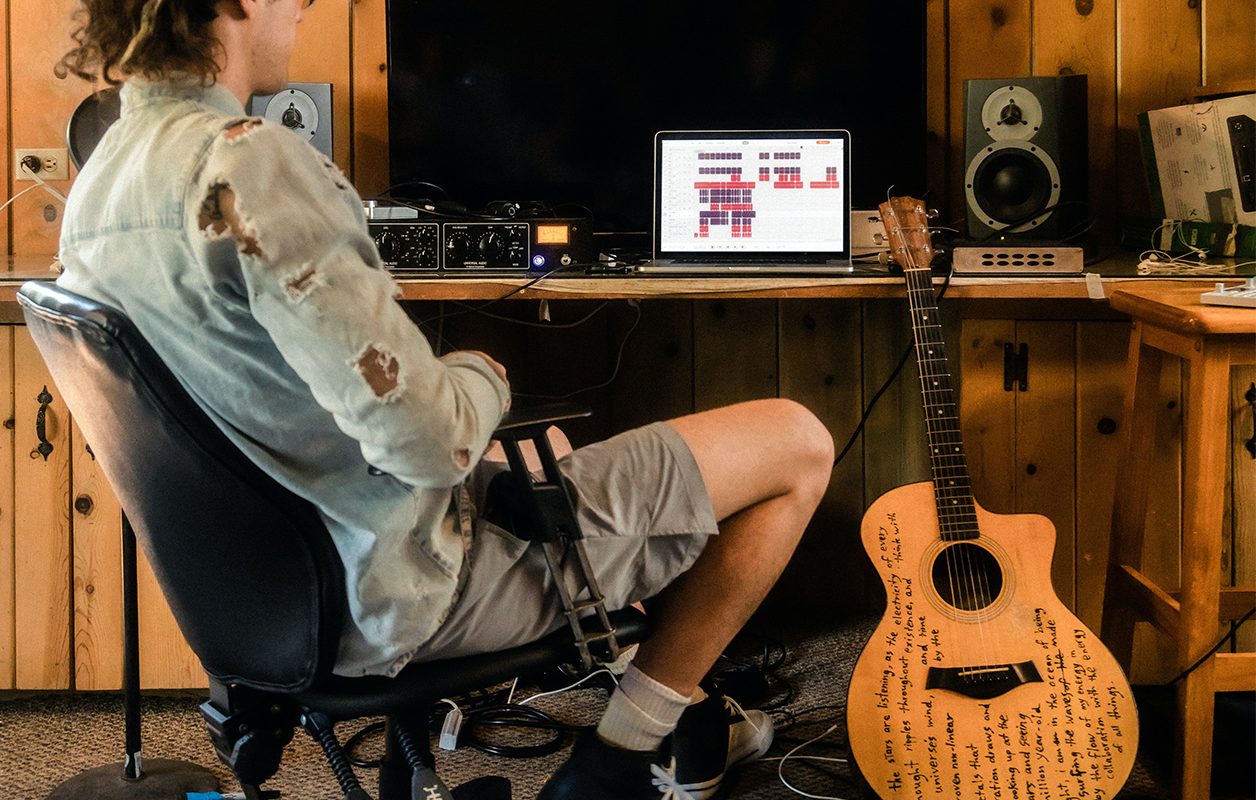
Being a musician comes with a lot of priceless experiences. However, like any creative field, the music industry is heavily romanticized as a whole. If you’re considering following this career path, it’s best to know what you’re getting into upfront – knowledge is power.
Below, we’ll talk about the lesser-known truths of the music industry today. While every artist has their own path, understanding these insights can help you make informed decisions on your road to success.

9 Things Every Musician Should Know
From the good to the bad and the ugly, here are nine things no one tells you about being a musician.
1. It’s Very Challenging to Make a Living On Streams Alone
Most musicians know that the rise of streaming made it more difficult to earn a living off of your music. However, most artists might not know just how difficult it is to even make minimum wage from someone streaming your music.
Let’s take the music industry hubs of New York City and Los Angeles, for example. In 2021, you would have needed to get 455,285 streams per month in California and 406,505 streams in NYC to make the equivalent of minimum wage – and that’s assuming you earn 100% of your publishing.
In short, you’ll likely have to do much more than just music in order to build a sustainable career around what you love. It’s easier to find notoriety in the music industry than to secure a significant source of income.
2. You Need to Sign Up for a PRO
In order to collect your full share of music royalties, you need to register your music with a performance rights organization or PRO. We explain this concept in more detail in our linked article, but essentially, without a PRO, you are missing out on royalties obtained from sync licensing or public performances.
It’s also important to note that if you own both halves of the publishing rights, i.e. you own the master and you wrote the song, you need to sign up as both a publisher and songwriter to collect full royalties.
3. Streams Do Not Equal Ticket Sales
Music is at an interesting inflection point where we hear plenty of artists organically building a following through social platforms like TikTok, seemingly creating a career overnight. However, it’s important to remember that while obtaining exposure as an artist may be more democratic in today’s age, it doesn’t necessarily mean you get a shortcut.
Streams and playlist placement do not necessarily equate to ticket sales, so every artist needs to put in the demanding work behind building a brand and a genuine connection with their respective audiences.
4. Touring Comes with a Whole Host of Challenges
It’s easy to romanticize the life of a touring artist – you get to see the world, meet people who connect with your music, and play your songs night after night. You might not expect to put up your own money to hold down venues, or for venues to take a 15 to 20% cut of your merchandise sales.
Unfortunately, touring has become a lot more financially precarious, even for well-established artists. Creatives like Santigold have had to cancel recent tours for financial reasons. Touring is a great way to connect with existing fans and find new listeners, but don’t automatically assume you’ll be able to afford the costs that come with it.

5. There Are Very Few Overnight Successes
The way certain artists are marketed may lead you to think otherwise, but most successful musicians are far from being overnight success stories. Breaking onto any particular scene can take years, and isn’t guaranteed. The best way to increase your chance of being heard isn’t to place your bets on one singular theoretical event (like going viral) — instead, focus on taking small steps towards your goals regularly.
6. Being Creative Isn’t Always Effortless
We’re often sold a vision of the artist where they effortlessly build music, with ideas seemingly developed out of thin air. In reality, most artists have to work through several, if not hundreds of ideas, before they find one that’s worth seeing through. Creativity isn’t always effortless, but that doesn’t mean you shouldn’t create the space to cultivate it.
If you consistently set aside time to exercise your craft, you’ll find that the “good” ideas might come a bit easier – but that doesn’t mean the process is full of “a-ha” moments.
7. Marketing is Almost as Important as Making
Good music will only speak for itself if it has enough exposure to reach the right set of ears. Additionally, most listeners will not be able to tell how much effort or strife went into creating a particular song. Don’t let great be the enemy of good while creating, and remember that it’s essential to market your music if you have any expectation of being heard.
8. Setting Boundaries Is Part of Self-Care
The lifestyle of a musician is not an easy one. Take a group of highly sensitive people, mix in an irregular sleep and work schedule, add in temptations of alcohol and substance abuse, and you get a pressure cooker for burnout. The industry may try to convince you otherwise, but it’s crucial to your mental and physical well-being to put your needs first. Prioritize self-care and implement practices that help protect your peace.

9. The Craft Is Worth It In Itself
Musicians are some of the hardest-working craftspeople around. It’s no surprise that on that ruthless climb to the top, many of us lose sight of what drives us to make music in the first place. Remember that playing music is a worthwhile pursuit in itself – monetizing your art form does not make you any less or more valuable as an artist. Your power is in your ability to play and connect with people from all walks of life.
Throughout your journey as an artist, you’ll face endless trials and tribulations that may change the course of your path. When in doubt, take some time to self-reflect on your own personal journey. How have you grown as an artist? Who have you met or connected with as a result of your art?
Being a musician is a gift that shouldn’t be taken for granted. The going will get tough, but don’t let the pitfalls steal your passion.

